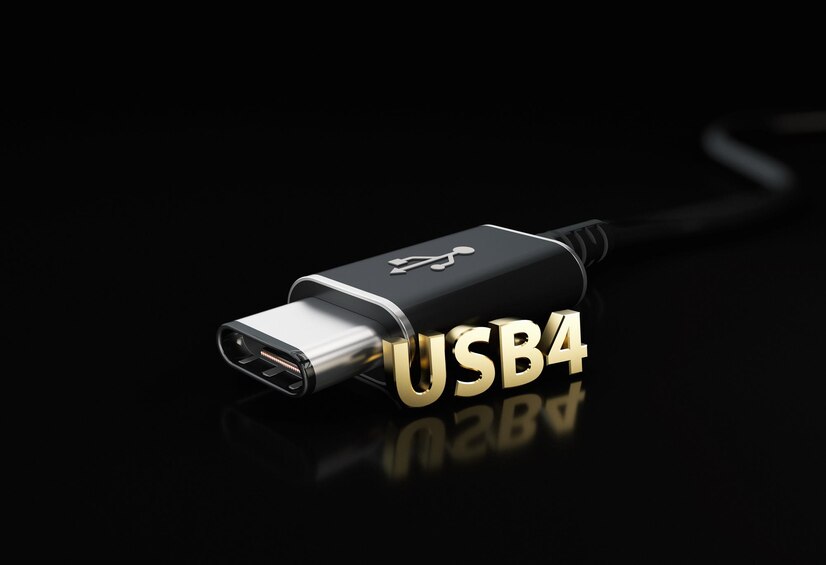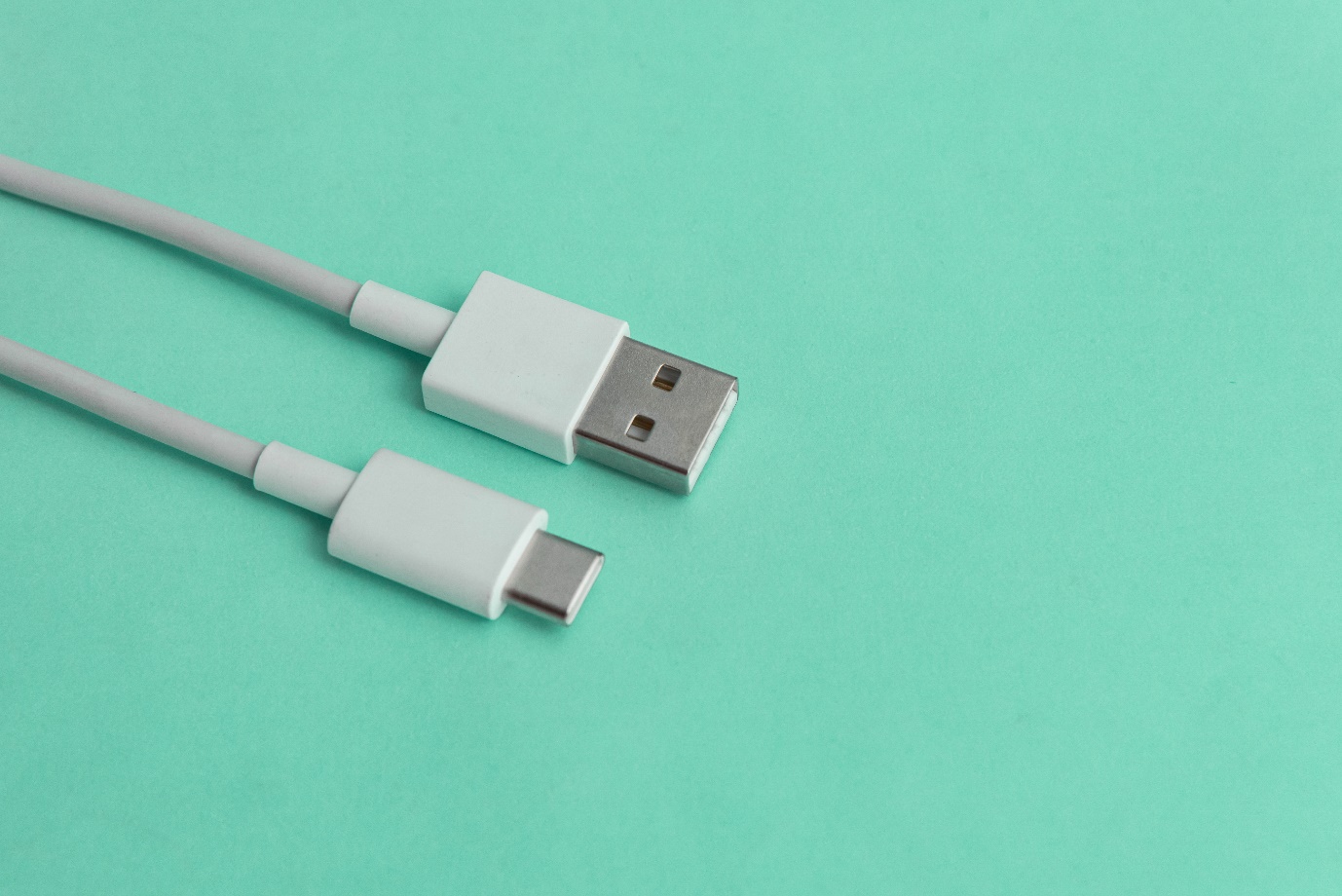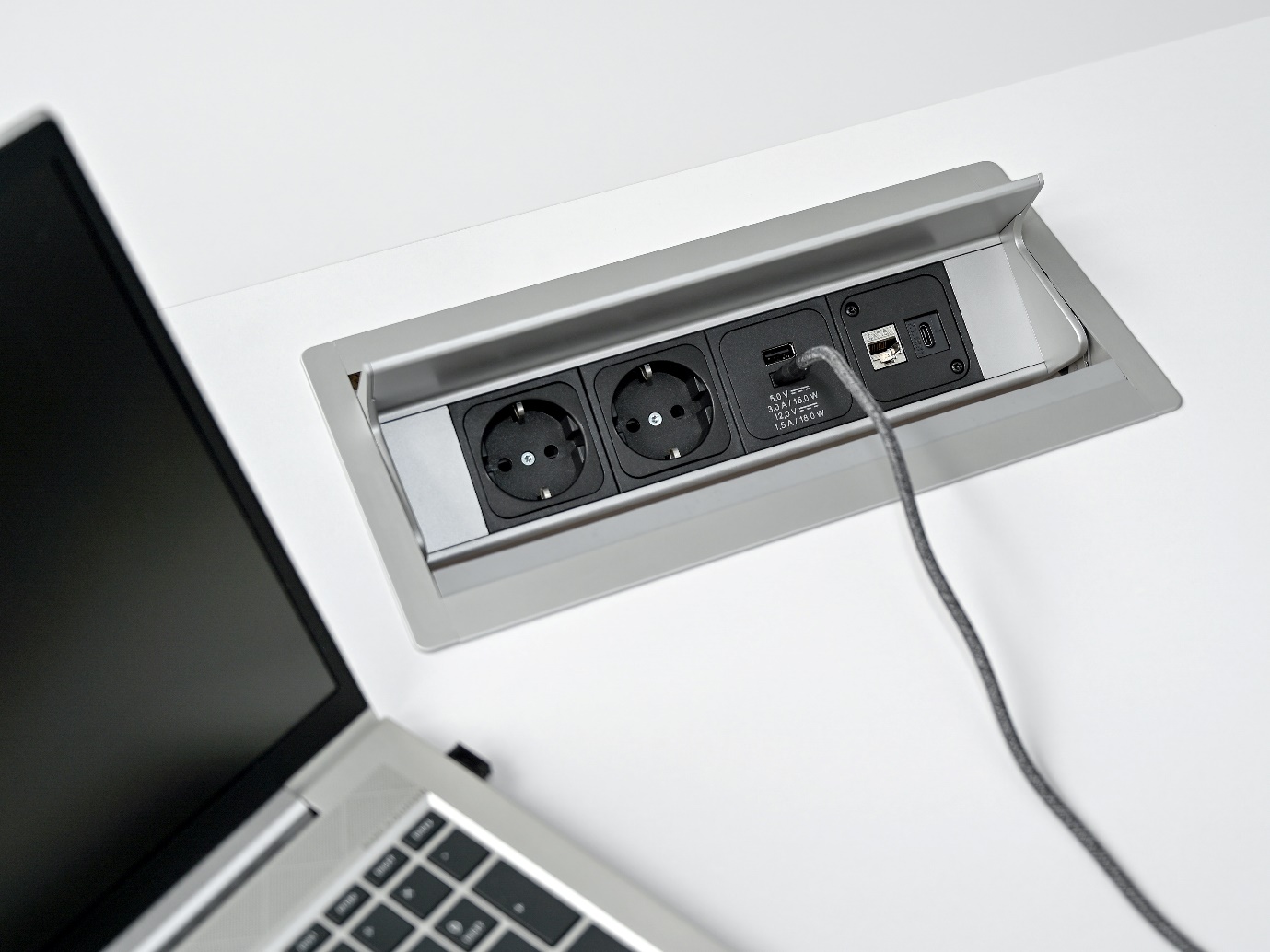
The industry group behind USB released an update to the data transfer standard that claims to have doubled the maximum speed up to 80 gigabytes per second. But the new USB 4 version 2.0 has another trick that should help those who need to transfer large data: the ability to reach 120 Gb/s in certain conditions. However according to some experts, the update will not come out immediately as it might take months to come out.
Features of the new USB standard

Source: https://www.freepik.com/search?format=search&query=USB%20type%20c
Following are some of the features that we know of the new update:
- It will operate at speeds up to 80 Gbps based on a new physical layer architecture using existing 40 Gbps passive USB Type-C cables and newly defined 80 Gbps active USB Type-C cables.
- Updates to mapping data and protocols to better utilize the increase in available bandwidth.
- Updates to the USB data architecture now allow USB 3.2 data tunneling to exceed 20 Gbps.
- Updated to the latest versions of the DisplayPort and PCIe specifications.
- Backwards compatible with USB4 version 1.0, USB 3.2, USB 2.0 and Thunderbolt 3.
It’s not clear at this point if there will be an advantage to moving to a higher bandwidth cable if current generation cables are capable of providing the same performance, but the use of the “up to” 80Gbps performance language likely indicates the newer cables are capable maintain higher speeds longer than current generation cables. The increased speed is due to the use of a new, more efficient data encoding scheme that allows for more data to be transferred in the same amount of time.
These updates will greatly benefit users who work with a large number of high-bandwidth devices in larger setups, such as multiple DisplayPort monitors, multiple connected USB devices, Ethernet, and more.
USB 4 speed vs USB-C speed

Source: https://unsplash.com/photos/PtpKoPFQs2A
Since both support use of the same protocol, this is where one may become confused when testing two models running at different speeds using a single adapter board or cables: if you select an ASUS U301SJU04W as your hub then everything works fine with maximum advertised transfer rates.
However, by installing Intel’s ACPI controller in PCIe slots it will be possible to lower these numbers somewhat for higher specific bandwidth requirements like streaming HD video over SATA III via SCSI adapters; again unless they are explicitly set low enough that switching between them becomes difficult due lessening latency on future.
Differences between USB 4 standard and USB-C cables
Many people are confused between the differences between USB 4 standard and USB-C cables and adapters. This article will help you understand these differences so that you can choose the one that is best for your needs. USB 4 standard cables have a rectangular shaped connector that is similar to the old Mini-B (a/b) plugs, whereas a USB-C cable has a round shape with two symmetrical vertical prongs on each side.
Benefits of using a USB-C cable vs USB 4 standard
There are some benefits of using a USB-C cable as opposed to a USB 4 standard.
USB-C cables are more adaptable than USB-4 cables. A growing number of devices support the USB-C and can be plugged into any other device that also supports it. The USB-C cable can also carry more power and data than the previous standards, which allows it to support various types of devices, such as laptops and tablets, with different power needs. USB 4 cables have been superseded by USB-C cables, which means all devices must use the new cables to be compatible with each other. They are also more durable than their predecessors and can be used with various devices due to their versatile design.
Conclusion
USB 4, also known as USB Type-C, is the latest version of the ubiquitous USB connector. It offers several advantages over its predecessor. The new USB 4 standard will transfer data at 80 Gb/s, meaning it would take less time to transfer larger files. The cable will also have a higher power output, meaning that devices can charge faster and more efficiently. The difference is that this USB version will have a reversible connector and won’t be prone to wear and tear like previous versions.

Muhammad Asfandyar is a lawyer having extensive experience in creative content writing, proofreading, legal and academic research writing. He can be reached at asfandyar.edw@gmail.com
